Doha, Apr 2: Citing “extreme weather conditions,” Qatar’s Supreme Education Council has decided that private and public schools should remain shut today.
Several universities are also closed today, including Northwestern University in Qatar, Carnegie Mellon University in Qatar, Georgetown University in Qatar and Virginia Commonwealth University in Qatar. The College of the North Atlantic Qatar has also announced it will be shut.
The move comes as Qatar residents wake up after one of the worst sandstorms the country has seen in years.
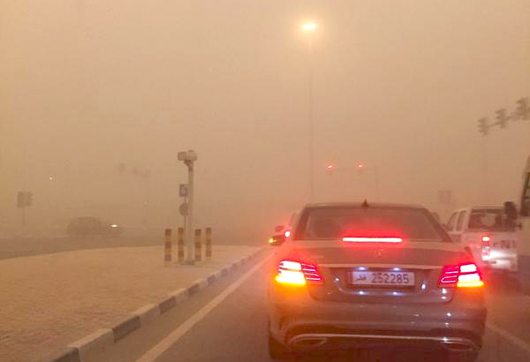
The weather is a result of a high pressure front from Saudi Arabia, which has also shut many of its schools in certain parts of the country, Arab News reports.
Hamad Airport
Early this morning, a number of flights due to depart from Hamad International Airport (HIA) were delayed due to the adverse weather, an airport representative said, although only one was canceled.
A Jet Airways flight to Mumbai had been scheduled to take off at 3:20am, but was delayed for more than three hours and is now set to take off at 7am.
A Qatar Airways flight to Colombo in Sri Lanka was also delayed by more than three hours as it finally took off at 4:30am, instead of its scheduled 12:55am.
Another Qatar Airways flight, this time to Riyadh, suffered delays of nearly six hours as the flight which had been set to leave at 1:10am is now due to leave at 7am.
R1157 from Dammam (KSA) which was due to arrive in Doha at 5:10am has been rescheduled for a 9:25am arrival, while QR1167 from Riyadh was delayed from its 5:25am arrival and is now due to arrive in Qatar at 10:50am.
Finally, a Fly Dubai flight to Dubai which was due to leave Doha at 3:10am was canceled.
However, most flights appear to have landed this morning as scheduled, without incurring any significant delays.
And the airport representative told Doha News that most flights would be flying on schedule for the rest of the morning. Still, passengers due to travel today are advised to check with their airline for the latest status update.
Weather forecast
According to the Qatar Meteorology Department (MET), wind speeds here are forecast to reach as high as 35 knots inshore (65km/hour) and 38 knots (70km/hour) offshore.
Dusty conditions are expected to prevail through Friday, though the worst of this sandstorm should be over by lunchtime, says Steff Gaulter, senior meteorologist at Al Jazeera English:
For those reporting to work today, the Ministry of Interior has warned of almost zero visibility on the roads, and reminded people to please refrain from using their hazard lights:
Here’s a roundup of what people are experiencing around town:
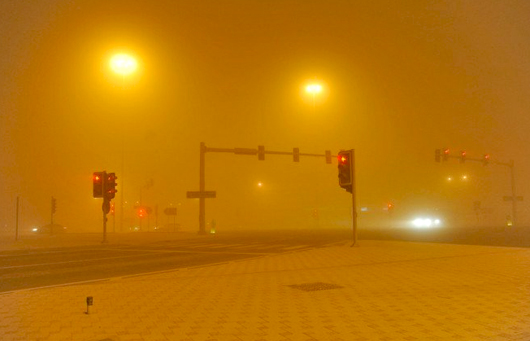
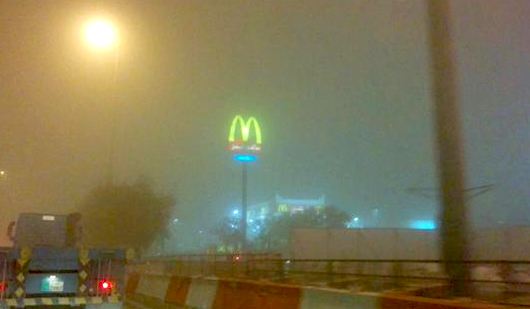
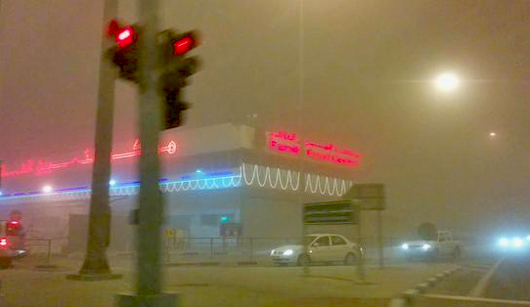
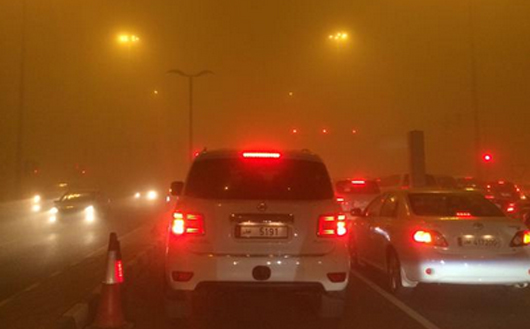
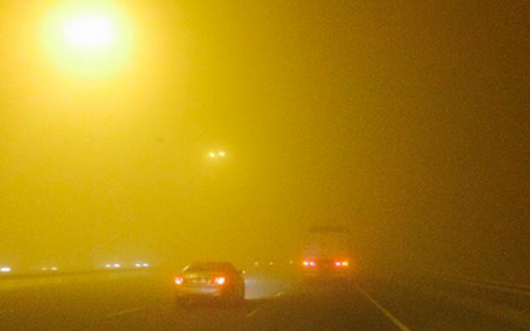
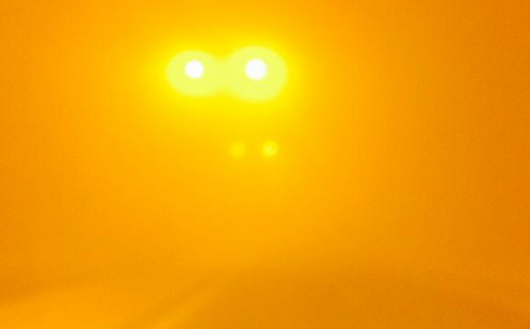







.jpg)
.jpg)
Comments
Howdy just wanted to give yyou a brief heads up and let you
know a few oof the pictures aren't loading properly.
I'm not sure why but I thbink its a linking issue.
I've tried it in two different browsers and both show thhe same
results.
my siye ... top eleven football manager cheats deutsch: http://topelevencheatsgroup.webstarts.com
Add new comment